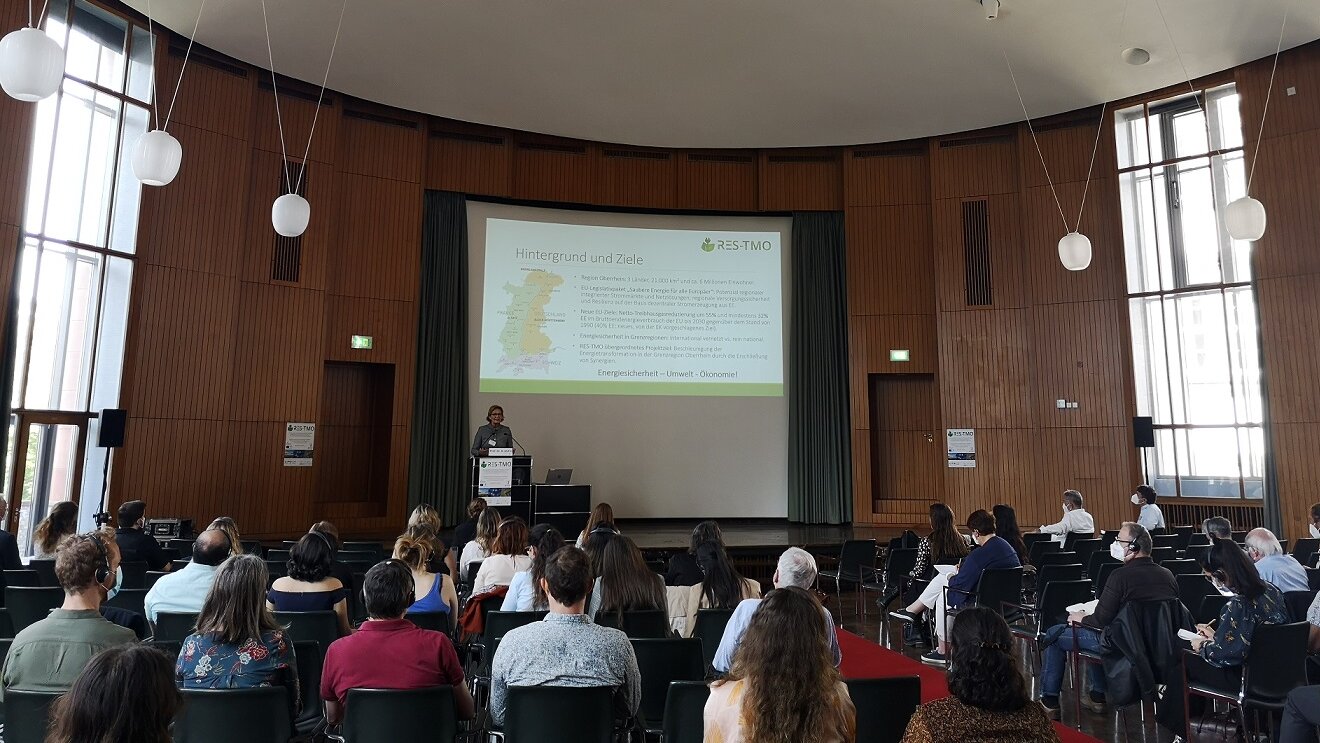The project RES-TMO is coming to an end and our final colloquium took place on 10th May 2022 in a hybrid format in the Aula of the University of Freiburg and on Zoom. The project partners from France and Germany presented their key results to around 150 participants (in-person and online) from industry, politics and science under the moderation of Vulla Parasote (TRION-climate) and Ines Gavrilut (University of Freiburg, FeLis).
The keynote speech was held by Ms. Marie-France Vallat, Councillor of the European Collectivity of Alsace. The RES-TMO project lead Prof. Barbara Koch of the University of Freiburg and the Upper Rhine Cluster for Sustainability Research (URCforSR) introduced the project.
After that, scientists from the Universities of Freiburg, Strasbourg, Haute-Alsace and the KIT presented their key research findings on the potentials for regional renewable energy generation, decarbonisation scenarios for the energy sector of the Upper Rhine region, key related technologies and transformation pathways, including the challenge of extending electricity grids to ensure the flexibility needed for integrating large shares of renewables. Another important part was the discussion of smart grids and microgrids, as digitalized solution for dealing with the increasing complexity of decentralized energy systems and related cybersecurity threats and solutions.
After a brief break, the focus shifted to the socio-cultural, legal-administrative and economic aspects of the energy transformation. The interactions between relevant actors, the power dynamics, the related socio-cultural dimensions as well as legal/economic/financial challenges for the development and upscaling of renewable energy and related storage technologies also have a key role to play in the energy transition. Social innovation, such as citizen energy initiatives and energy cooperatives, legal experimentation and economic incentives can be part of the solution.
At the end, the RES-TMO video was showed in premiere, which is available here.
